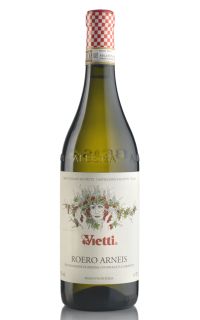Though the idea for conceptualizing Vietti wines was sown during the 19th century, the brand started making its own wines only during the beginning of the 20th century. The first wines from the Vietti label were made during 1919 by Patriarch Mario Vetti, and the label has grown from strength to strength since then. By the 1950s, the Vietti winery became one of the top-producing wineries in the Piemonte region. By this time, this Italian wine label had also started exporting its wines to the USA.
Some of the grape varietals used for creating Vietti wines and the areas from where they are sourced are:
Arneis
These grapes are sourced from the vineyards located in the Santo Stefano Roero region. These vines are quite old and are planted with a density of around 5000 vines per hectare.
Moscato d’Asti
These grapes are sourced from the vineyards in Castiglione Tinella. These vineyards contain 40-year-old vines that are planted with a density of around 4500 vines per hectare.
Dolcetto d’Alba
These grapes are sourced from the limestone-clay rich soils present in the Langhe region vineyards. Here, the vine density is around 4500 vines per hectare.
Barbera
The Barbera grapes are sourced from different vineyards to create authentic vines. The vineyards from where these grapes are used by the Vietti group are:
- The vineyards of Monforte, Castiglione Falletto, La Morra and few places in Langhe
- Scarrone vineyard in Castiglione Falletto
- Vineyards of Agliano Terme
Nebbiolo
Like the Barbera, the indigenous grape varietal of Nebbiolo, too, is sourced from different vineyards to craft the Vietti wines. These vineyards include:
- Barolo Vineyards
- Treiso and Neive Vineyards
- Singe vineyard of Rocche in Castiglione Falletto
- Single vineyard of Lazzarito located in Serralunga d’Alba
- Cru vineyard of Brunate in La Morra
- Single vineyard of Ravera located in Novello
- Villero vineyard of Castiglione Falletto
https://www.vietti.com
Find out more

















